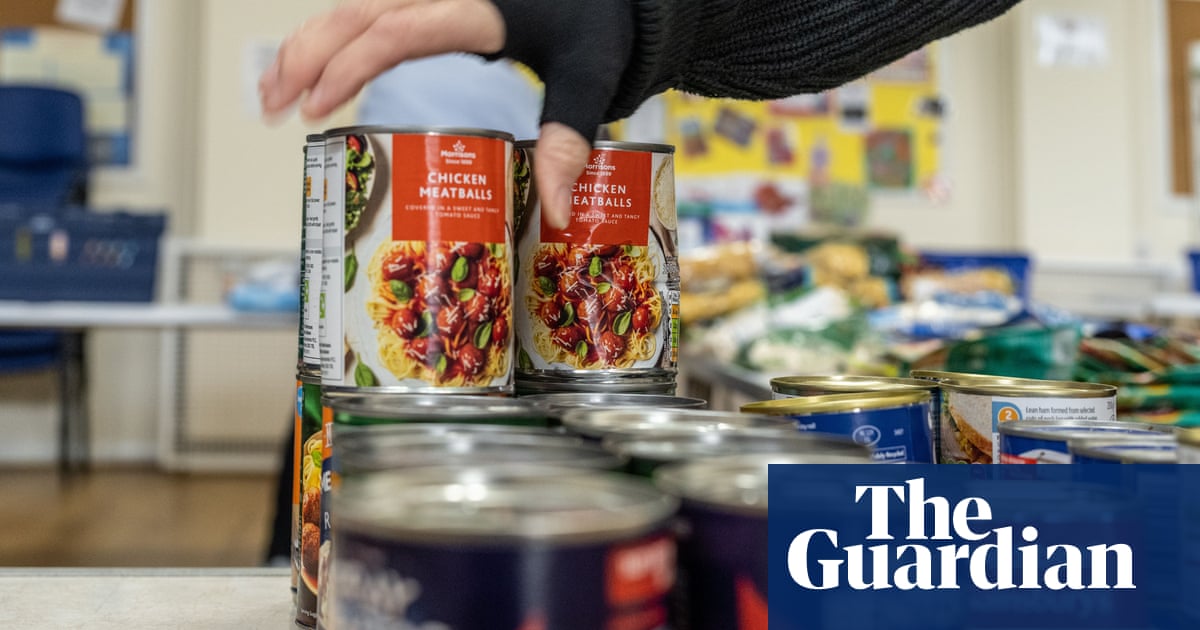and the torys response? cut social welfare
If all poor people just die then you won’t need any social wellfare!
Fridges are a lifestyle choice, like sleeping rough in a tent.
Oof. Assuming electricity at its peek of 35p / kWh - a fridge freezer costs between 10p and 20p a day to run.
So a saving of 3 to 6 quid a month, things must be grim if that’s worth doing.
Thats if you turn it off entirely, which would make your food go bad and cost far more in spoiled food?
If they are jhst turning it on and off at peak times, its hardly going to save anything, as the fridge will work harder to reach temp again. Which also risks burning it out faster.
How can turning off the fridge make any sense? Unless its secondary fridges/freezers?
Grim indeed.
If you are turning off your fridge to save money, you likely do not have much in there to worry about going off.
Sometimes, you’re bombarded with stupid ideas from boomers, and at one point, you’ve to at least partially give in…
Ahh yes only boomers can be dumb. It could never be an idiot gen A. They are just so much smarter than everyone out there!
Yes let’s blame people born around 2010 as they are clearly the reason for all the problems in the UK right now. Idiot…
There is a huge trend in the media, and has been for a long time, to feature commentators from older generations lecturing younger generations on saving money in order to distract from the worsening economic situation for everyone (except the 1%)
Boomers sold their kids out because they think they are part of the big club when in reality they just provide political cover for the club in exchange for being permitted to own a house and having retirement.
Do you have any indication that this advice on fridge-freezers came from a ‘boomer’ - or indeed anywhere? Or are you just displaying your own prejudices?
This assumes most know the maths. 10% could well match with folks who just see it as on all the time. No reason most would understand how to calculate the highest draws of electricity in their house.
deleted by creator
I wonder if the guardian asked 10 people, of which one of them said this, and so they assumed 10% of the country is doing it. It says “since May”, when it was at times 30C+, I dont beleive this at all.
The guardian don’t link to the research used to make this claim. It’s apparently from the Joseph Roundtree Foundation but a quick scan of their site didn’t turn up anything to corroborate the guardian’s analysis. I must stress I am at work and only looked for a short amount of time.
Nevertheless it would be useful for a paper such as the guardian to properly quote and attribute their claims.
These stats are according to “the Joseph Rowntree Foundation (JRF) charity”, the guardian are just reporting what they said
Sorry but that just sounds dumb. Unless you’re living off dried and tinned food?
Milk keeps fine on a windowsill in winter. Plenty of fresh stuff doesn’t need refrigerating if you’re going to use it quickly. Which you will, if money is tight, because you can’t afford a big shop anyway.
Good point!
This is the best summary I could come up with:
Nearly half of those households said that since May they had to disconnect their fridge or freezer for the first time, a sign the cost of living crisis was still hurting low-income families, according to the Joseph Rowntree Foundation (JRF) charity.
Millions of families were still resorting to “desperate measures” to cope with rising bills and prices, it said, with four out of five households on universal credit also going without food, turning off the heating, and not replacing worn-out clothing.
The JRF’s latest cost of living crisis tracker survey found that in October a quarter (2.8m) of UK low-income households ran up debt to pay for food, a third sold belongings to raise cash, and one in six had used community “warm rooms”.
The findings come amid concerns among poverty charities that ministers are looking to reduce financial help for low income families at next week’s autumn statement by cutting benefits and winding down cost of living support payments.
There is speculation ministers could freeze the value of working age benefits from next April, which would raise billions for the Treasury but make about 9m households lose out on an estimated average of £460, and push lower income families even further into poverty.
Charities are concerned that headline falls in inflation levels, while welcome, will do little to improve living standards for the poorest unless benefits, the value of which has been eroded over recent years, are increased to reflect food and energy prices and private sector rents.
The original article contains 603 words, the summary contains 249 words. Saved 59%. I’m a bot and I’m open source!









